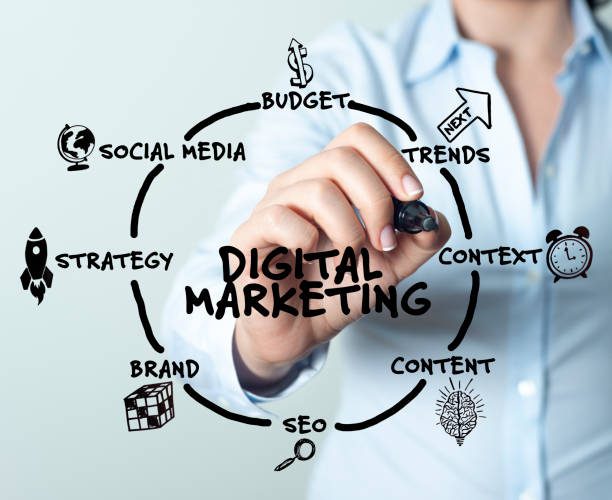
The Ghanaian pharmaceutical industry is one of the fastest-growing sectors in West Africa. It plays a vital role in healthcare delivery and job creation.
In recent years, the sector has expanded quickly. This growth comes from strong government support, rising demand for medicines, and investment from both local and international companies.
According to Deloitte Ghana, pharmaceutical sales reached GHS 6.6 billion (US$571 million) in 2023. The market is expected to rise to GH₵ 10.7 billion (US$735 million) by 2028. Statista also projects revenue of US$254.88 million in 2025.
1. Ernest Chemists Limited
Ernest Chemists Limited is one of the most recognized pharmaceutical companies in Ghana. Established in 1986, it has grown from a single retail shop into a large company with manufacturing plants, wholesale centers, retail outlets, and warehouses.
The company is fully Ghanaian-owned and produces a wide range of medicines. Its products are trusted not only in Ghana but also across the West African sub-region. Ernest Chemists is also known for its social impact, creating jobs and supporting community health programs.
2. Entrance Industries & Research Centre
Entrance Industries & Research Centre is one of Ghana’s largest pharmaceutical manufacturers. The company operates state-of-the-art facilities that meet international quality standards. Its production line covers many types of drugs, from antibiotics to specialized medicines.
Entrance also invests heavily in research, which makes it a leader in innovative drug development. With strong local and regional distribution, it plays a major role in making quality medicines accessible to patients.
3. Kinapharma Limited
Founded in 1996, Kinapharma Limited has become a powerhouse in the Ghanaian pharmaceutical industry. The company employs nearly 500 people and manufactures essential drugs for both local and regional markets.
Kinapharma supplies medicines to neighboring countries, strengthening Ghana’s role as a regional hub. Its wide product portfolio and strong distribution network make it one of the most reliable pharmaceutical brands in West Africa.
4. Dannex Ayrton Starwin Plc (DAS Pharma)
DAS Pharma was formed through the merger of three leading Ghanaian companies: Dannex Limited, Ayrton Drug Manufacturing Limited, and Starwin Products Limited. This merger created one of the largest pharmaceutical groups in the country.
DAS Pharma produces a wide range of medicines and is known for its commitment to quality manufacturing and research. The company has also expanded its export network, which has boosted Ghana’s visibility in the global pharmaceutical market.
5. Tobinco Pharmaceuticals Limited (TPL)
Tobinco is a leader in the distribution and marketing of pharmaceuticals in Ghana. Its sister company, Entrance Pharmaceuticals, focuses on manufacturing, while Tobinco ensures wide product availability across the country.
Tobinco’s aggressive marketing and vast distribution network have made its medicines highly accessible. The company also collaborates with international manufacturers, importing products that fill gaps in the local healthcare system.
6. Unichem Ghana Group
Unichem Ghana Group is a major force in both manufacturing and distribution. The company operates a cGMP-compliant facility capable of producing tablets, capsules, powders, and other dosage forms.
With modern facilities and strict quality controls, Unichem supplies products that meet both local and international standards. Its reputation for reliability makes it a preferred choice for healthcare providers.
7. Letap Pharmaceuticals Limited
Letap Pharmaceuticals Limited was founded in 1979. With over four decades of experience, the company has built a strong reputation for producing affordable, high-quality healthcare products.
Letap manufactures more than 150 medicines, including antibiotics, analgesics, and vitamins. Many of its products are exported to other West African countries, showing its strength beyond Ghana’s borders.
8. Amponsah Effah Pharmaceuticals Ltd
Amponsah Effah Pharmaceuticals is known for its innovative approach to drug production. The company focuses on combining modern pharmaceutical techniques with traditional medicine practices, making it unique in Ghana’s market.
This approach allows the company to address local health needs while meeting international quality standards. Amponsah Effah has become one of the most respected names in Ghana’s pharmaceutical sector.
9. Add Pharma Ghana Limited
Add Pharma is a wholly Ghanaian-owned company that specializes in importation, distribution, and retail of pharmaceutical products. Its strength lies in covering the entire pharmaceutical value chain.
From bringing in products to ensuring they reach patients through retail outlets, Add Pharma provides a reliable link between manufacturers and consumers. Its strong retail presence makes medicines accessible to many communities.
10. mPharma
Unlike traditional pharmaceutical manufacturers, mPharma focuses on using technology and data to improve healthcare delivery. The company partners with pharmacies to manage inventory and provide financing, ensuring a steady supply of affordable medicines.
mPharma’s model is innovative and has attracted global attention. By improving efficiency in the supply chain, it is transforming how patients in Ghana access medications.
Market Trends and Growth Factors
The pharmaceutical industry in Ghana benefits from several drivers:
- Government support for local manufacturing.
- Healthcare access programs that increase demand for medicine.
- Rising middle-class spending on quality healthcare.
- Regional export opportunities across West Africa.
These factors create a positive environment for growth. The Food and Drugs Authority (FDA) Ghana also enforces strict regulations to ensure product quality and consumer safety.
Quality Standards and Certifications
Most leading pharmaceutical companies in Ghana comply with WHO Good Manufacturing Practices (GMP). This ensures that products meet global quality and safety benchmarks.
Many companies also hold ISO certifications and export licenses, proving their commitment to quality. These certifications allow them to expand into regional markets and compete internationally.
Summary and Key Takeaways
Ghana’s pharmaceutical industry is expanding rapidly, driven by local innovation, international partnerships, and strong regulatory support. Like the pharmaceutical companies in Nigeria and Kenya, Ghana’s pharmaceutical industry benefits from several growth drivers that position these companies for continued expansion.
Whether you are an investor, healthcare professional, or policymaker, understanding these companies gives insight into one of the most promising industries in Ghana. With steady growth, rising demand, and a commitment to quality, Ghana’s pharmaceutical sector is set to play an even bigger role in Africa’s healthcare future.
Key Takeaways
- Ghana’s pharmaceutical industry is one of the most advanced in West Africa.
- Companies like Ernest Chemists, Kinapharma, and Entrance Industries lead the way in manufacturing.
- Distributors like Tobinco and Add Pharma ensure wide product reach.
- Innovators like mPharma bring new models to healthcare delivery.
- Strict regulation by the FDA and adherence to international standards keep medicines safe.
Frequently Asked Questions
Q: What makes a pharmaceutical company reliable in Ghana?
A: A reliable company should have WHO-GMP certification, FDA Ghana approval, a broad product portfolio, and strong distribution networks.
Q: Do Ghanaian companies export to other countries?
A: Yes. Companies like Kinapharma, Ernest Chemists, and Letap export to West Africa and beyond.
Q: Are locally produced medicines safe?
A: Yes. Ghana’s FDA enforces strict safety and quality standards, and most top companies comply with WHO-GMP guidelines.
Q: Which companies focus on traditional medicine integration?
A: Amponsah Effah Pharmaceuticals is notable for combining traditional medicine with modern production techniques.
Q: What role does mPharma play?
A: mPharma is a healthcare technology company that improves access to medicines by partnering with pharmacies and managing supply chains.
Q: What is WHO-GMP certification and why is it important? A: WHO Good Manufacturing Practices (GMP) certification ensures pharmaceutical companies follow international standards for manufacturing, quality control, and safety protocols. All major Ghanaian pharmaceutical companies maintain this certification for credibility and export capabilities.
Q: What regulatory compliance do these companies maintain? A: All major companies maintain FDA Ghana registration, WHO-GMP certification, and comply with local pharmaceutical regulations. Many also hold ISO quality management certifications and export licenses for regional markets, demonstrating comprehensive regulatory compliance.





